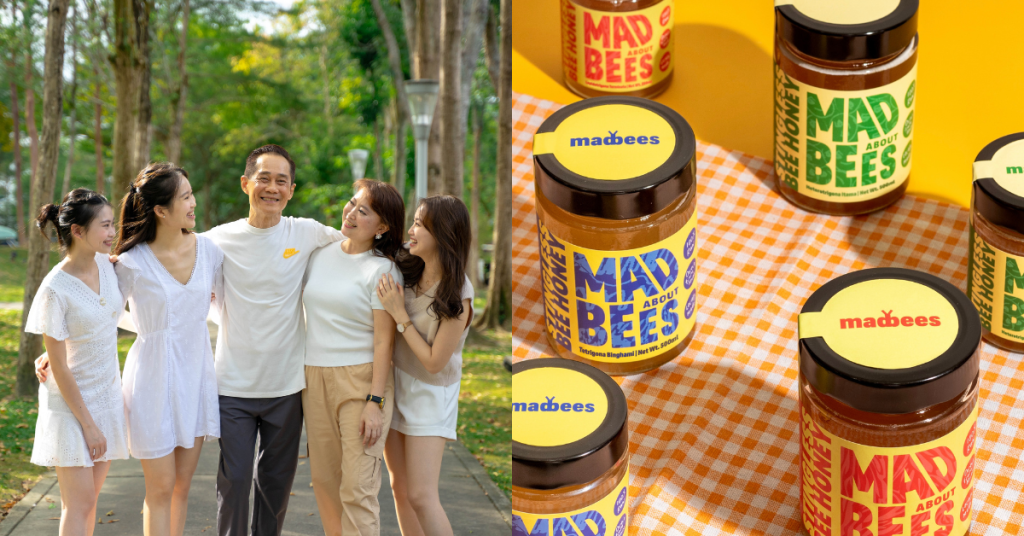Over the years, we’ve come across a number of kelulut honey brands in Malaysia. In fact, Vulcan Post recently just featured one by the name of Darlings Honey. For those who haven’t heard, though, kelulut honey from a species of stingless bees that are native to Malaysia.
We even saw a brand, Eco Bee Biotech, present some local kelulut honey at a business expo in Macao, so it’s safe to say that the buzz hasn’t died down yet.
A newer homegrown brand that has joined the scene is Madbees. Madbees was founded by retiree Simon Hiew along with his daughters, Evelyn, Dorcus, and Carolyn.
Simon’s journey with kelulut honey started not too long ago, having only recently joined hands with his partner who has been beekeeping for over 20 years.
He became involved after tasting kelulut honey and falling in love with the flavour as well as its health benefits. He experienced first-hand its advantages, such as regular poops, lower cholesterol, and better sleep. He couldn’t stop praising it, his daughters commented.
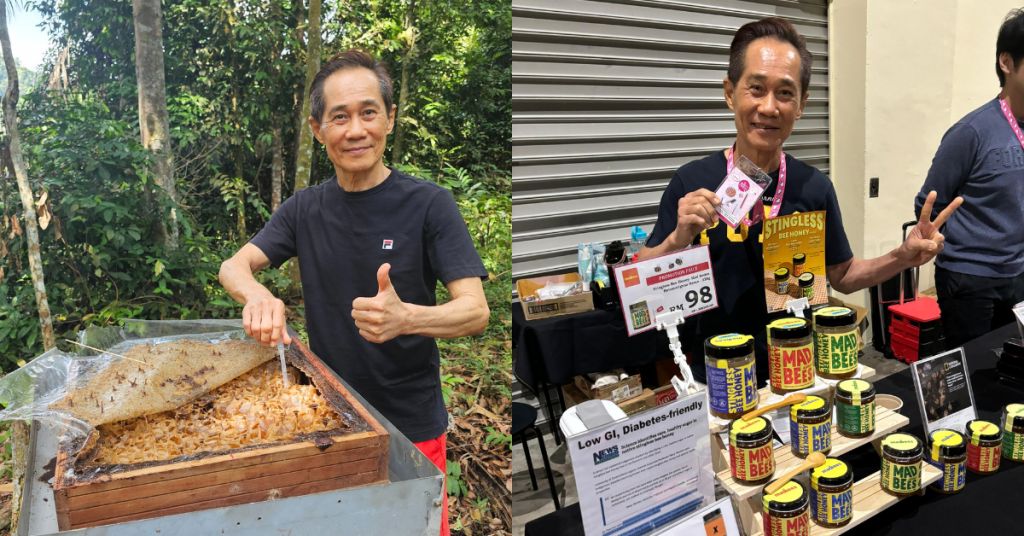
Thus, he decided to share this gift of health to families and friends through a consumer brand.
“It started humbly, just by word-of-mouth, sharing the goodness of it, and educating people about how regular honey might not be as healthy as the public thinks,” the daughters shared with Vulcan Post. “Eventually people sought after it and he decided to package it nicely and brand it.”
Simon invested around RM200,000 of his own funds into the business, and Madbees was exposed to the public last November.
A family effort
Growing up, the sisters were never really exposed to bees or farms.
Evelyn comes from an International Business & Marketing background, while Dorcus and Carolyn embarked on Fashion Business and Graphic Design journeys respectively.
“All very different and niche but eventually, all these backgrounds helped in our dad’s business,” they pointed out.
But, why did they decide to help out? Easy. To help their dad share kelulut honey with the world.
“Okay, maybe not the whole world, but to the people of Malaysia,” they amended.
While kelulut honey may have become familiar to a small community locally, there’s no question that it remains virtually unknown compared to honeys like Manuka.
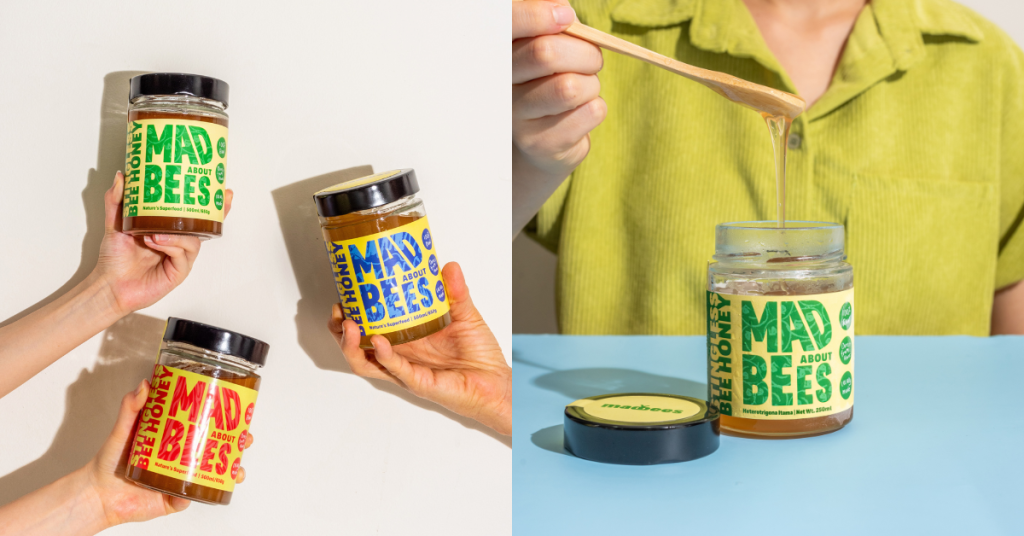
Why couldn’t this awareness be given to local Malaysian honey, the sisters wondered, especially when there are so many health benefits attached to it. For example, it’s diabetic-friendly as a unique honey that scores low on the glycaemic index.
At one point, the sisters were deep-diving into research papers and journals to learn everything they could about kelulut honey and other honeys.
“And that was when it hit us—hey, it seems like we’re mad about bees. Every day we’re learning new things and facts about bees and honey so let’s call it Madbees,” the sisters decided.
Together, the trio came together to create the Madbees brand. Evelyn does the ideation and copies, while Dorcus and Carolyn design everything from the pretty packaging to the social media visuals and animations.
While the three sisters handle the branding behind Madbees, the farm, which is located in Mantin, Seremban with 500 housed hives, is run by a family of five Orang Asli.
Every two months, they will extract the honey, obtaining around 250 to 280kg per harvest. From there, it is sent to the Hiews’ house for sterilisation and packaging.
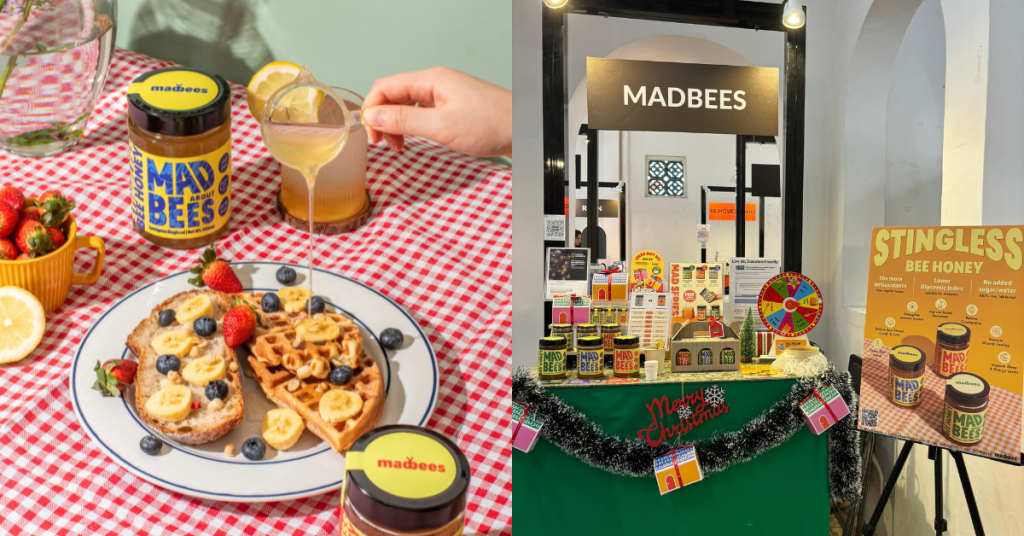
“That’s when the whole family comes to help, including our mother,” the sisters said.
For the three, though, Madbees is currently a part-time venture. Each of them has their own commitments, such as Evelyn with her wellness/dance studio, Dorcus as an illustrator and graphic designer, and Carolyn with her own full-time job.
Spreading Kelulut information
While kelulut honey has been receiving more recognition in recent years, it has also led to increased counterfeit products.
The Madbees team have heard from some customers that the kelulut honey they purchased before was very different in terms of effects, colours, taste, and smell even though it’s the same stingless bee species.
“There are some factors to this difference, but mainly it’s the location and nectar source,” they explained. “Most kelulut honey is conveniently made, where it’s literally homegrown, probably at the back of the house.”
This means the bees can only collect nectar from surrounding trees and plants that might not have high nutritional values.
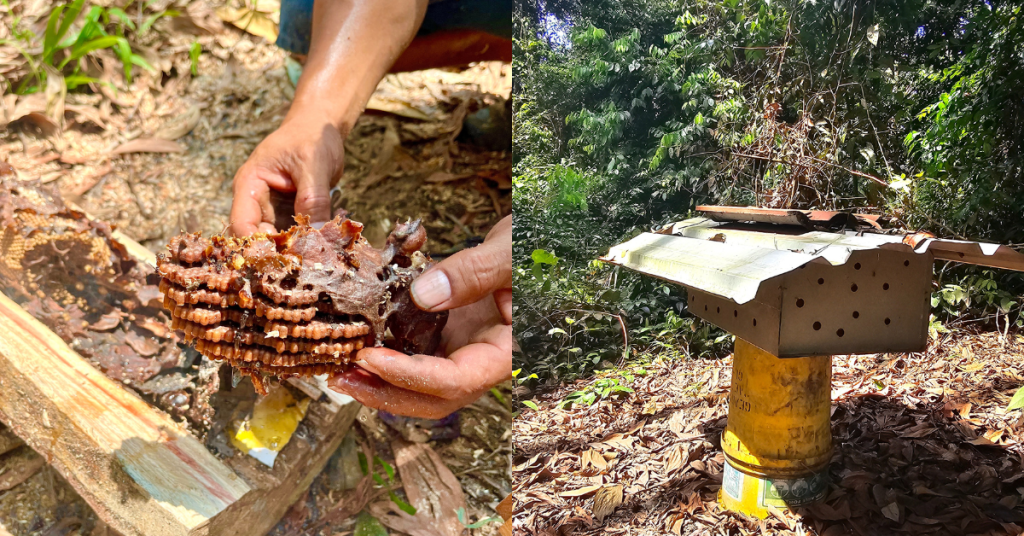
On the other hand, Madbees honey is harvested deep inside the Malaysian jungle, away from city pollution where bees roam freely in their natural habitat. Their nectar source is from Acacia trees, which are known for their antioxidant richness and are also linked to a host of therapeutic medicinal benefits.
The sisters claim that this increases the value of their honey and the benefits it brings. A number of their customers apparently give feedback that they were able to experience the benefits (most noticeably bowel movement) from day one.
Another differentiating factor of Madbees is that they actually offer honey from three different species—Heterotrigona Itama, Lepidotrigona Terminata, and Tetrigona Binghami. The latter is rarer and possesses more antioxidant and antibacterial properties.
Happy, busy bees
In running a business with family, it’s natural that some disagreements have cropped up, and that much is true for Madbees too. However, they’ve all learnt to compromise and not take things personally.
“Whenever there’s tension, we try to take a step back from a third POV and think objectively, and we’ll do a voting among the family,” they said. “No hard feelings on the option that wasn’t chosen.”
Since its inception, Madbees has been joining a number of pop-up events, where Simon is typically present as well.
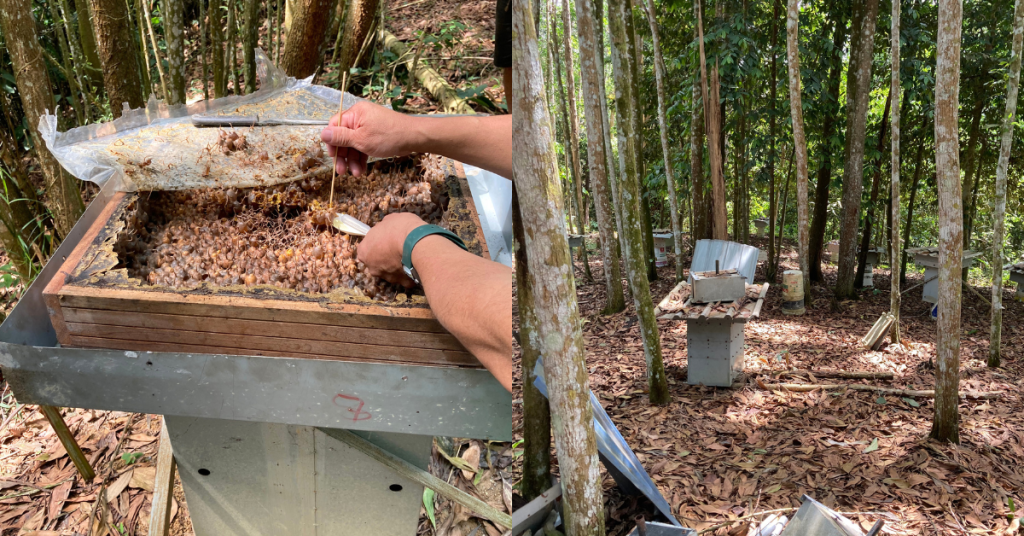
“He packs with us, prepares the jars, and drives us to the place himself,” the sisters said. “If you see us in the booth but not him, he’s just drinking his Americano within the vicinity (and spying on us).”
Business thus far has been decent, but there have certainly been some challenges along the way, especially concerning customers’ trust.
“There has been so much news surrounding fake honey and people are more sceptical, which is good, but that also means trust is hard to attain,” they pointed out. “Especially through online platforms where people can’t get to try and get educated in that short period of time.”
During pop-up markets, they often get asked whether water or vinegar is added, or why the honey tastes sour, or if it’s really raw. When met with these questions, the team will show off their lab results as well as videos of their honey production in the jungle.
Pricing is another factor that keeps people from buying, they said. However, it comes down to the fact that stingless bees are very rare and hard to get. As such, the production yield is very small each month, with just 300 to 500g per hive.
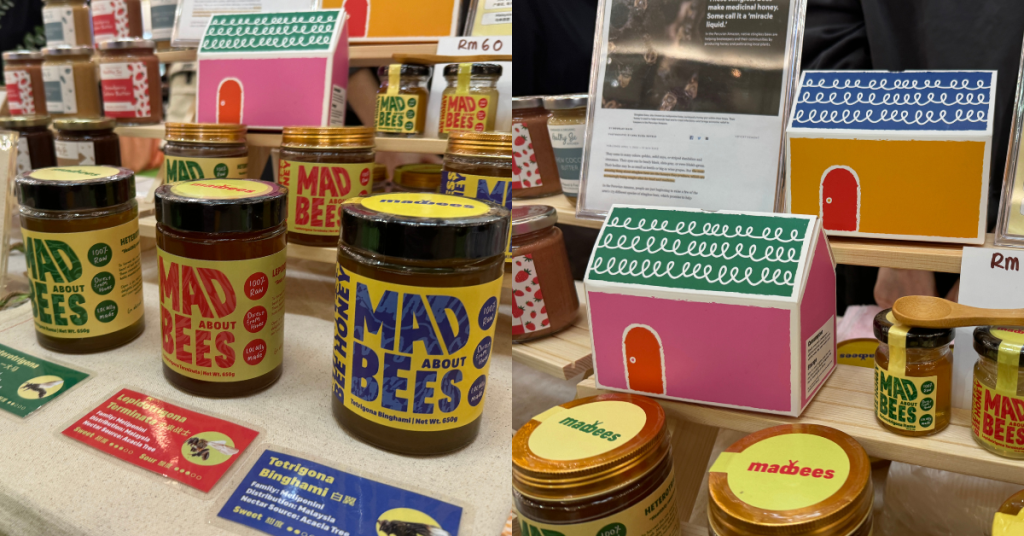
On top of that, the farm also risks having wild animals such as bears stealing and destroying the hives.
“That is why Madbees does better in pop-up markets, we get to educate about our honey and give them a taste of what it’s like,” the sisters said.
They plan to double down on awareness and education, especially through pop-ups and perhaps collaborations too.
“We wish to expand our product lines including bee pollen, honey drinks, and sachets, and go international,” they shared. “So that everyone can have a taste of Malaysian kelulut honey and experience its benefits.”
Although ambitious, the business is also rather humble. The sisters said that they are honestly satisfied with wherever Madbees is right now and have achieved—a small community of loyal customers, honest feedback, and a happy team of beekeepers.
They shared, “We try not to make this into a stressful business, we prefer a slow and steady growth, focusing on the quality rather than quantity.”
Featured Image Credit: Madbees



